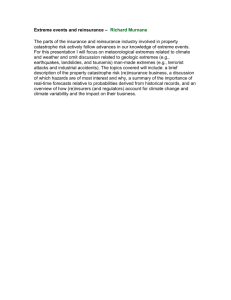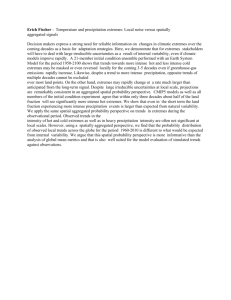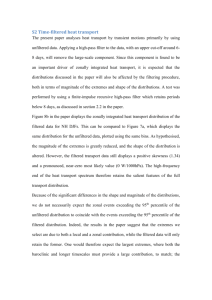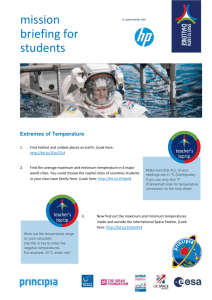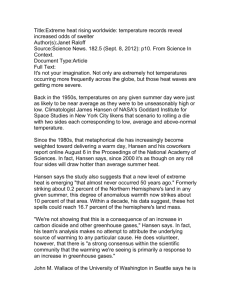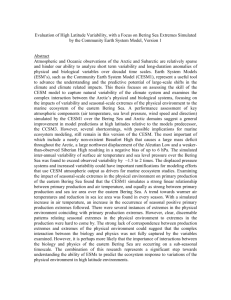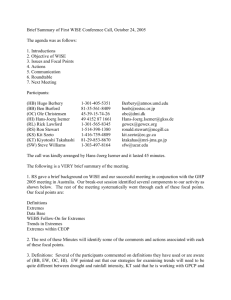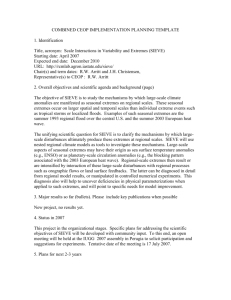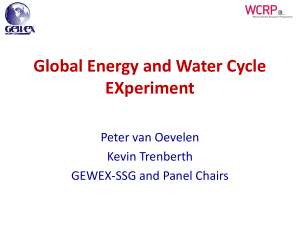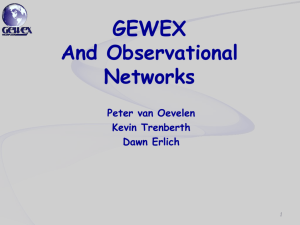WISE Article in the May 2005 GEWEX Newsletter
advertisement
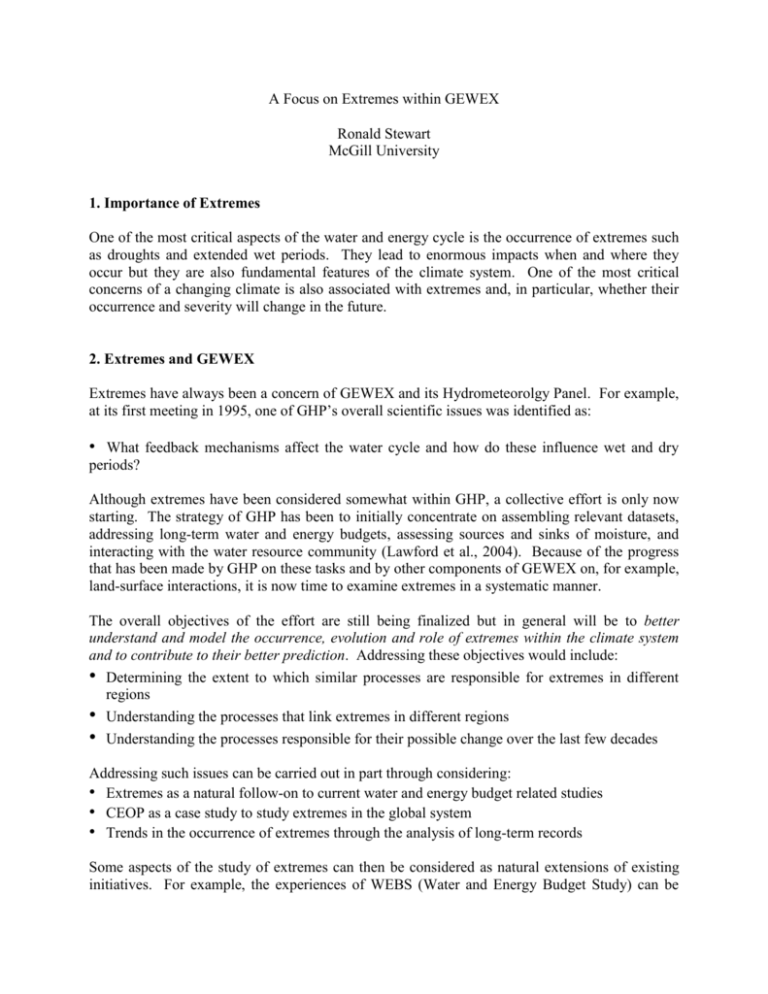
A Focus on Extremes within GEWEX Ronald Stewart McGill University 1. Importance of Extremes One of the most critical aspects of the water and energy cycle is the occurrence of extremes such as droughts and extended wet periods. They lead to enormous impacts when and where they occur but they are also fundamental features of the climate system. One of the most critical concerns of a changing climate is also associated with extremes and, in particular, whether their occurrence and severity will change in the future. 2. Extremes and GEWEX Extremes have always been a concern of GEWEX and its Hydrometeorolgy Panel. For example, at its first meeting in 1995, one of GHP’s overall scientific issues was identified as: • What feedback mechanisms affect the water cycle and how do these influence wet and dry periods? Although extremes have been considered somewhat within GHP, a collective effort is only now starting. The strategy of GHP has been to initially concentrate on assembling relevant datasets, addressing long-term water and energy budgets, assessing sources and sinks of moisture, and interacting with the water resource community (Lawford et al., 2004). Because of the progress that has been made by GHP on these tasks and by other components of GEWEX on, for example, land-surface interactions, it is now time to examine extremes in a systematic manner. The overall objectives of the effort are still being finalized but in general will be to better understand and model the occurrence, evolution and role of extremes within the climate system and to contribute to their better prediction. Addressing these objectives would include: • Determining the extent to which similar processes are responsible for extremes in different regions • Understanding the processes that link extremes in different regions • Understanding the processes responsible for their possible change over the last few decades Addressing such issues can be carried out in part through considering: • Extremes as a natural follow-on to current water and energy budget related studies • CEOP as a case study to study extremes in the global system • Trends in the occurrence of extremes through the analysis of long-term records Some aspects of the study of extremes can then be considered as natural extensions of existing initiatives. For example, the experiences of WEBS (Water and Energy Budget Study) can be utilized but with a focus on the droughts and extended wet periods that occurred over various regions rather than on the average conditions occurring over those regions. In addition, extremes can begin to be studied in a collective manner through CEOP (Coordinated Enhanced Observing Period). For example, during CEOP’s 2001-04 first phase, numerous extremes occurred including a long-lasting drought over western North America; a devastating heat wave in Europe; and periods of drought as well as flooding over Asia, South America, Australia and Africa. As well, multi-decade records assembled by GEWEX, generated by other groups, and produced through re-analysis efforts can all be exploited to focus on trends in extremes and their explanations. Because of their huge impact, extremes are important to other climate and disaster related initiatives. Therefore, linkages need to be developed with, for example, other WCRP projects and other international efforts including those concerned with disasters. With its focus on the water cycle, with processes occurring over land, and with its strong water resource connections, GEWEX is well positioned to take a leading role regarding extremes in the climate system. 3. Concluding Remarks Extremes such as droughts and extended wet periods are important to GHP and GEWEX but, until now, they have not been the focus of a coordinated effort. This is now changing and the new effort may well evolve into a cross-cutting theme for all of GEWEX and WCRP. References: Lawford, R.G., R.E Stewart, T. Yasunari, H. J. Isemer, M. Manton, J. Marengo, T. Koike, S. Benedict, P. Kabat, T. Lebel, J. Roads and P. Try, 2004: Advancing global and continental scale hydrometeorology: a summary of the contributions of the GEWEX Hydrometeorology Panel (GHP). Bull. Amer. Meteor. Soc., 85, 1917-1930.
